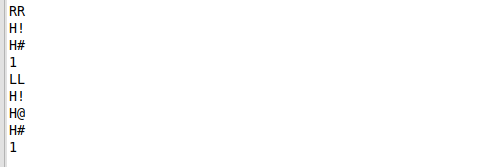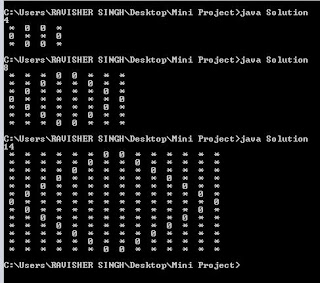Below is Code:
Try to Decode the Code How it is Running
public class Solution{
// Online Java Compiler
// Use this editor to write, compile and run your Java code online
public static int getme(int b) {
int a = 10; int c = 0;
try {
System.out.println("H!");
return a / b;
} catch (Exception e) {
System.out.println("H@");
return a / c;
} finally {
System.out.println("H#");
return 1;
}
}
public static void main(String[] args) {
System.out.println("\n\nRR");
System.out.println(getme(5));// 0,2
System.out.println("LL");
System.out.println(getme(0));// 0,
}
}
Output Snippet

